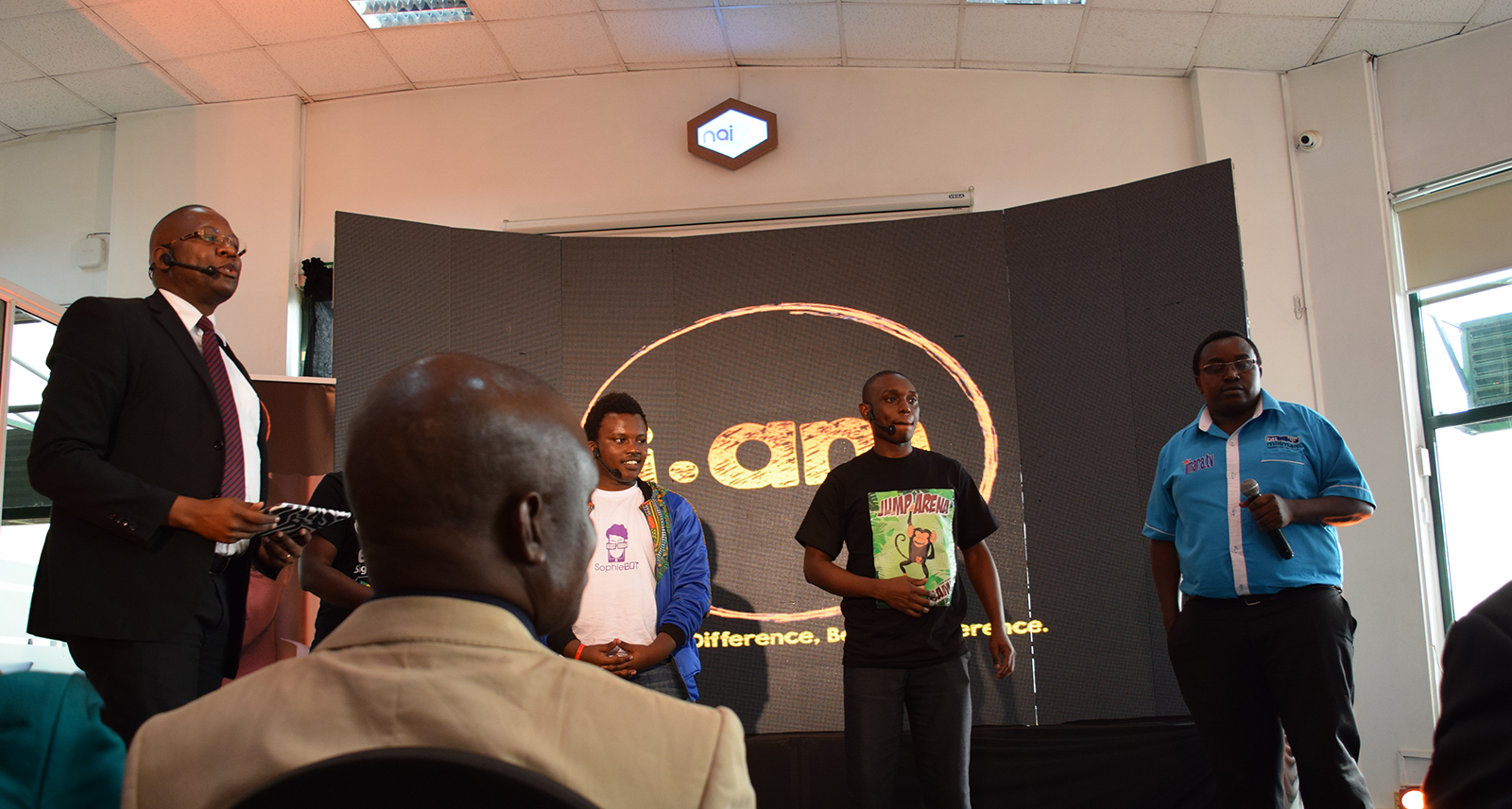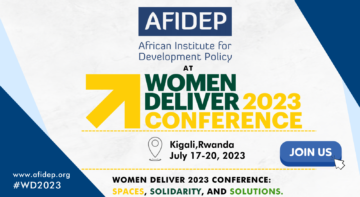Blogs

On 30 November 2016, four unique innovations focused on enabling young people to access accurate, credible and unbiased Sexual and Reproductive Health (SRH) information in stigma-free environments were unveiled in Nairobi. The innovations have been developed under a UKAid-funded annual four-month innovation accelerator programme known as iAccelerator. iAccelerator is implemented by UNFPA in collaboration with the Nairobi Incubator Lab (Nailab), a technology-driven startup incubator based in Nairobi. AFIDEP is implementing innovative work in SRH by translating knowledge, engaging with policy makers and building capacity for evidence informed policy making in Africa. Research shows that harnessing Africa’s majorly youthful population is key to its social and economic development. The AFIDEP team present at the launch was interested to see how existing evidence and gaps in SRH are shaping innovation by the youth.
The iAccelerator programme was launched as part of UNFPA’s I Am campaign that aims to promote innovations that provide solutions to the challenges of access to information and services on reproductive health for the youth. The initiative encourages young people to talk about, learn and understand issues around their sexuality and sexual reproductive health. In Kenya, this initiative has been developed with the support of the National Council for Population and Development (NCPD) and the Ministry of Health (MoH) in order to ensure alignment with national priorities and also to further contribute to the realisation of the country’s Vision 2030.
The launch of the I Am initiative and the accompanying accelerator programme was informed by government statistics that reveal that as many as 98 teenagers are infected with HIV – with up to 14 dying – each day from complications stemming from the virus. Moreover, national statistics by the Kenya National Bureau of Statistics (KNBS, 2014) and the National AIDS Control Council (NACC, 2014) indicate that more than 29, 000 people between the ages of 15 “ 24 become infected with HIV every year, while one in every five girls between the ages of 13 and 19 have already begun motherhood, leading more than 13, 000 of these girls to drop out of school each year. The campaign therefore seeks to embolden the search for and adoption of alternatives “ innovative and out-of-the-box thinking that could transform the way aid and development programmes are delivered.
In August 2016 four finalists were selected – Fluid, Sophie Bot, Imara TV and Deaf Elimu “ were selected for the iAccelerator programme. The innovators were paired with expert mentors, enrolled in business management and development training and given access to seed capital of Kshs 1 million. These successful finalists were drawn from a pool of 10 submissions.
Fluid built a mobile game that seeks to combine fun and learning (edutainment) by bringing to life the theories that one has learnt on sexuality and sexual reproductive health. It aims to help a young person deduce, react and decide on real-life situations through games.
Sophie Bot is an intelligent system fed with verified information on sexuality and sexual reproductive health and relays the information “ which originates from UNFPA – to its users through conversations that are either keyed in as text or as a voice chat within the system. “Her’ features include anonymous forums and digital chat-bots built into the application, Facebook, Twitter, Messenger, and Telegram.
Deaf Elimu is a web and mobile application that enables deaf users to search for specific SRH information/words in the Kenyan Sign Language (KSL) and to observe KSL stories and explanations about SRH through video content. Persons with regular hearing can also follow the KSL stories since the video features closed captioning. It also incorporates a gaming and quiz aspect to the video.
Imara TV is an online system and mobile application that crowd-sources and curates youth-generated video content on human development, sexuality and identity and whose content is also guided, verified and accredited by the Ministry of Health.
The iAccelerator program has received backing from the Ministry of Health and the National Council for Population and Development. Speaking at the function on behalf of Dr. Kigen Bartilol – the Head of the Reproductive Health unit at the Ministry of Health – Mr. Clifford Katana, a Health Promotion Officer at the Ministry said that the initiative is a step in the right direction because it is providing substantive and quality information on SRH to the youth, as well as providing them with economic opportunities through these innovations. He also noted that the MoH is implementing the 2015 National Adolescent Sexual and Reproductive Health Policy that was developed by the use of rigorous evidence on sexual reproductive health.
The Deputy Director of Communications at the NCPD, Mr. Peter Nyakwara noted that the National Youth Survey by NCPD (with AFIDEP’s technical support) clearly showed that the challenges affecting the youth in the country are similar. He added that initiatives such as the iAccelerator programme provide the youth with platforms to engage and provide solutions to their own issues as well as solving their unemployment problem. The founder and CEO of Nailab, Sam Gichuru, congratulated the efforts of the four youth startups and observed that this was an amazing opportunity for the youth. He also noted that when young people are coupled up with amazing ideas, resources, and mentors to draw experience and inspiration from, a lot can be achieved. Ms. Judith Kunyiha, an Assistant Representative at UNFPA Kenya country office voiced the agency’s commitment to continued investment towards such initiatives and urged all partners present to amplify their own efforts to make sure the youth have access to accurate and reliable information as well as services in order to mitigate some of the life challenges they face.
After the four-month incubation period, the four finalist startups are entitled to apply for US$2,500 from the Nailab Fund. The second round of the programme starts in July 2017.
Related Posts





